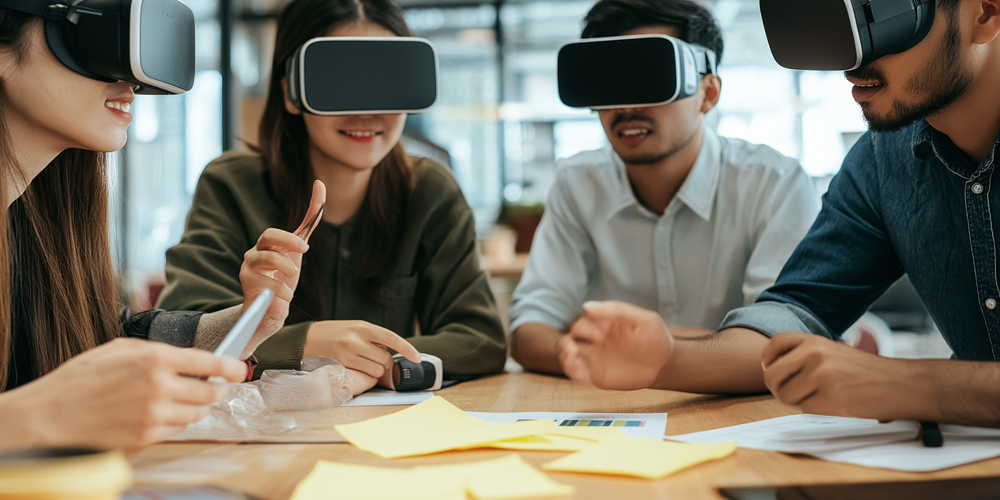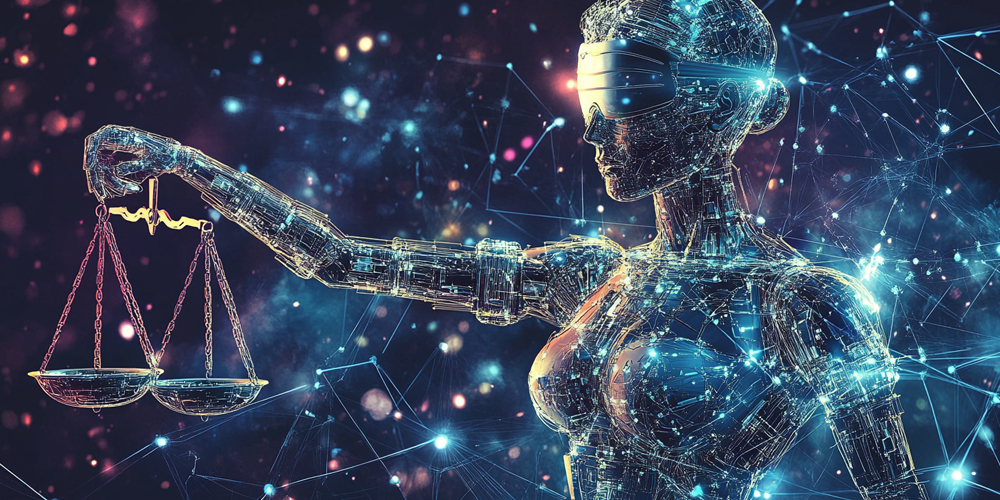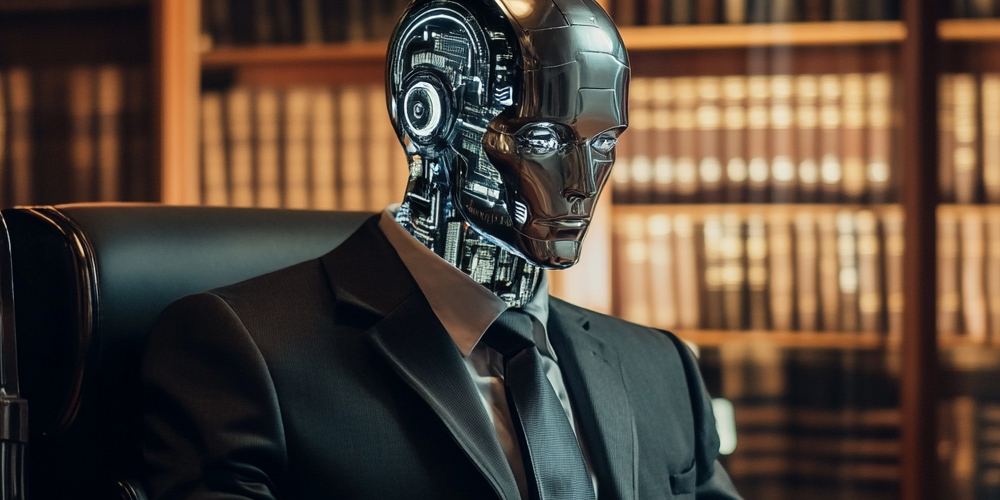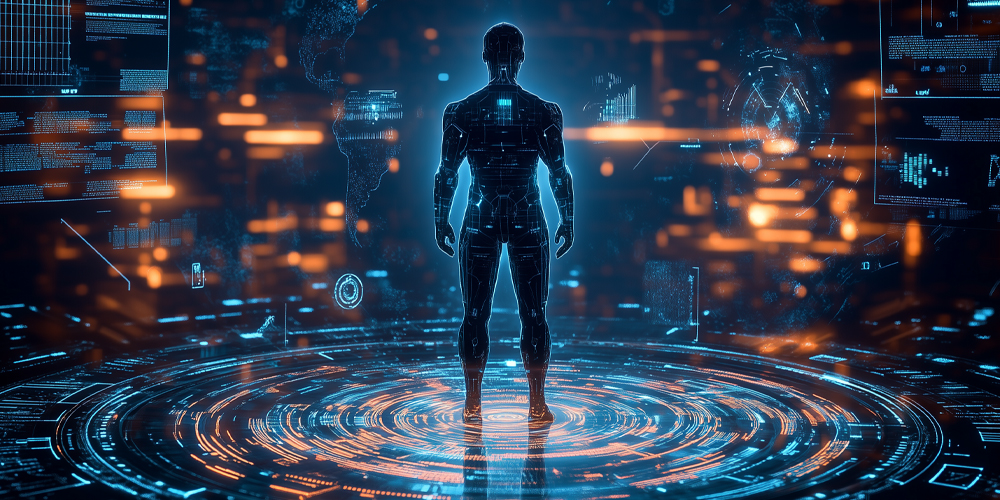AI and Machine Learning in Daily Life
Artificial Intelligence (AI) and Machine Learning are fundamentally transforming our lives, enhancing the efficiency and personalization of our daily routines. These groundbreaking technologies extend far beyond tech experts and researchers; instead, they have seamlessly integrated into the lives of billions globally. From the moment we awaken to the sound of an alarm until we settle down for the night, AI and machine learning are ever-present. This article will delve into the myriad ways these technologies are becoming indispensable components of our everyday existence.
AI in Personal Assistants
AI-driven personal assistants, such as Siri, Google Assistant, and Alexa, have become integral to our daily routines. These intelligent systems not only aid us in a variety of tasks, but they also enhance our productivity. For example, they help us set reminders, control home appliances, and provide real-time weather updates.
Voice Recognition and Natural Language Processing
The effectiveness of these personal assistants relies heavily on voice recognition and natural language processing (NLP). Such technologies empower them to comprehend user commands and deliver pertinent responses. Moreover, personal assistants enhance their capabilities over time, as machine learning algorithms allow them to learn your preferences. Consequently, this results in increasingly personalized interactions that better serve your needs.

Smart Home Integration
In addition to executing basic tasks, AI-powered personal assistants can seamlessly integrate with smart home devices. For instance, users can effortlessly control their lights, thermostat, and security systems through simple voice commands. This capability not only streamlines daily household management but also significantly elevates convenience and comfort.
AI in Healthcare
The influence of AI and machine learning on healthcare has been nothing short of revolutionary. Technologies range from wearable devices that monitor health metrics to AI-powered diagnostic tools, all contributing to a more accessible and efficient healthcare system.
Wearable Health Devices
Devices such as Fitbit and Apple Watch leverage machine learning algorithms to track physical activity, monitor heart rates, and analyze sleep patterns. These innovations provide users with real-time insights into their health, thereby empowering them to make informed lifestyle choices.
Early Detection of Diseases
Moreover, AI is significantly enhancing the early detection of diseases. For example, tools powered by machine learning can analyze medical images to detect signs of ailments such as cancer. By identifying issues at an early stage, healthcare professionals can deliver timely treatments, ultimately improving patient outcomes and saving lives.
AI in Transportation
The realm of transportation is experiencing a transformation thanks to AI, which has rendered travel more efficient and convenient. Navigation apps and autonomous vehicles are actively reshaping the future of transportation while simultaneously enhancing safety.
Navigation and Traffic Updates
Navigation applications like Google Maps and Waze utilize AI to deliver real-time traffic updates, identify the quickest routes, and predict arrival times. By analyzing historical data, traffic patterns, and road conditions, these apps enable users to reach their destinations more swiftly and efficiently.
Autonomous Vehicles
Furthermore, the advent of autonomous vehicles represents a monumental leap in AI technology. Companies like Tesla are at the forefront, employing AI and machine learning to create self-driving cars capable of navigating roads independently. These vehicles utilize sensors and cameras to detect obstacles, interpret road signs, and make safe driving decisions. Therefore, the potential for autonomous vehicles to reduce accidents and enhance road safety is profound.
AI in Entertainment
The entertainment industry is undergoing a transformation driven by AI. From streaming services to video games, AI is fostering more personalized and engaging experiences for users.
Personalized Content Recommendations
Streaming platforms like Netflix and Spotify employ advanced machine learning algorithms to suggest content tailored to individual preferences. By analyzing users’ viewing and listening habits, these platforms offer recommendations for movies, music, or TV shows that align with their tastes. As a result, this personalized experience not only keeps users engaged but also simplifies the discovery of new content.
AI in Video Games
Within the realm of video games, AI plays a pivotal role in creating more realistic and immersive experiences. Non-playable characters (NPCs) leverage machine learning to respond intelligently to player actions, thereby fostering a dynamic gaming environment. Furthermore, AI empowers developers to design adaptive game settings that adjust to players’ skill levels. Consequently, this ensures that the gameplay remains both challenging and engaging.
AI in Shopping and E-commerce
AI is also revolutionizing the shopping and e-commerce landscape. By delivering personalized recommendations and automating customer support, AI significantly enhances the overall shopping experience.
Product Recommendations
E-commerce giants like Amazon harness machine learning to recommend products based on users’ browsing histories and previous purchases. Such tailored recommendations facilitate product discovery, leading to increased customer satisfaction and sales.
AI-Powered Customer Support
Moreover, the widespread adoption of AI-powered chatbots for customer support has emerged. These chatbots efficiently manage inquiries and provide immediate assistance, thereby enhancing the shopping experience. Additionally, they continuously learn from interactions, refining their responses and improving support over time.
AI in Finance and Banking
The finance sector has enthusiastically embraced AI to enhance services, bolster security, and offer personalized customer experiences. Notably, machine learning has significantly improved the security and efficiency of banking operations.
Fraud Detection and Prevention
One of the most critical applications of AI in finance is fraud detection. Machine learning algorithms analyze user transactions to identify atypical patterns that may indicate fraudulent activity. By swiftly detecting potential fraud, banks can mitigate losses and safeguard customer accounts.
Personal Finance Management
AI-driven applications like Mint and YNAB empower users to manage their finances effectively. These applications utilize machine learning to analyze spending habits and offer tailored recommendations for budgeting and saving. Furthermore, AI can generate personalized budgets and assist users in setting and achieving their financial goals.

AI in Education
AI is transforming the educational landscape by providing personalized learning experiences and enhancing accessibility. AI-powered platforms and tools facilitate learning at each student’s individual pace.
Adaptive Learning Platforms
Platforms like Khan Academy leverage AI to develop personalized learning paths for students. By continuously assessing their progress, these platforms can adapt content to align with the student’s learning speed. As a result, this aids in the comprehension of complex topics.
Virtual Tutors
AI-powered virtual tutors offer supplementary support to students by pinpointing areas where they require assistance and providing targeted lessons. Such tutors enhance learning interactivity and ensure that students receive the necessary help, even in the absence of a teacher.
AI in the Workplace
AI has firmly established itself as a vital component of the modern workplace. It not only automates repetitive tasks but also enhances communication and significantly boosts productivity.
Virtual Meeting Assistants
Virtual meeting assistants such as Otter.ai utilize AI to transcribe meetings and summarize key points. This technology simplifies the process of reviewing essential information, ensuring that all participants remain aligned.
Task Automation
Additionally, AI facilitates the automation of repetitive workplace tasks, such as data entry, appointment scheduling, and email responses. By managing these mundane tasks, AI enables employees to focus on more creative and strategic endeavors. Consequently, this increase in focus ultimately enhances productivity.
AI in Smart Cities
AI and machine learning are instrumental in creating smarter, more efficient urban environments. By integrating AI into urban infrastructure, cities can enhance services, reduce waste, and improve residents’ overall quality of life.
Traffic Management
AI plays a crucial role in analyzing traffic data and managing congestion in urban settings. By monitoring traffic patterns and predicting congestion, AI assists city officials in optimizing traffic flow and minimizing delays.
Waste Management
Furthermore, AI-powered waste management systems optimize collection routes and minimize unnecessary trips, thereby conserving time and energy. By enhancing the efficiency of waste collection, cities can lower costs and mitigate their environmental impact.
Conclusion
AI and machine learning are increasingly woven into the fabric of our daily lives, offering convenience, personalization, and enhanced efficiency. From personal assistants that facilitate simple tasks to sophisticated systems powering autonomous vehicles, these technologies simplify life and boost productivity. As AI continues to evolve, its role in our lives will expand further, presenting additional opportunities for innovation and enhancement. By embracing and understanding these technologies, we can maximize the benefits they provide, ultimately elevating our quality of life.





